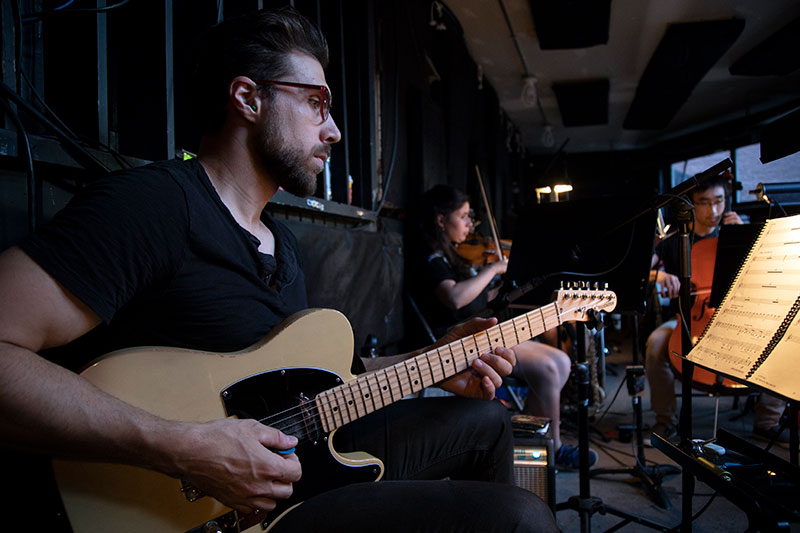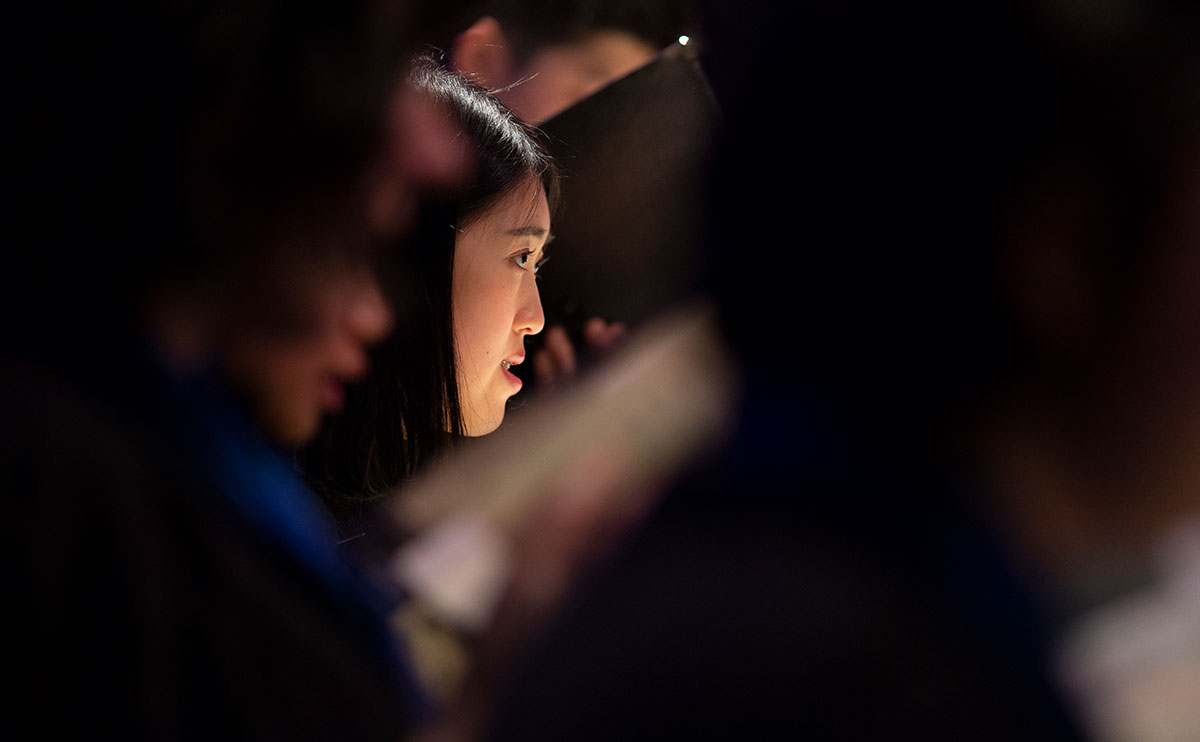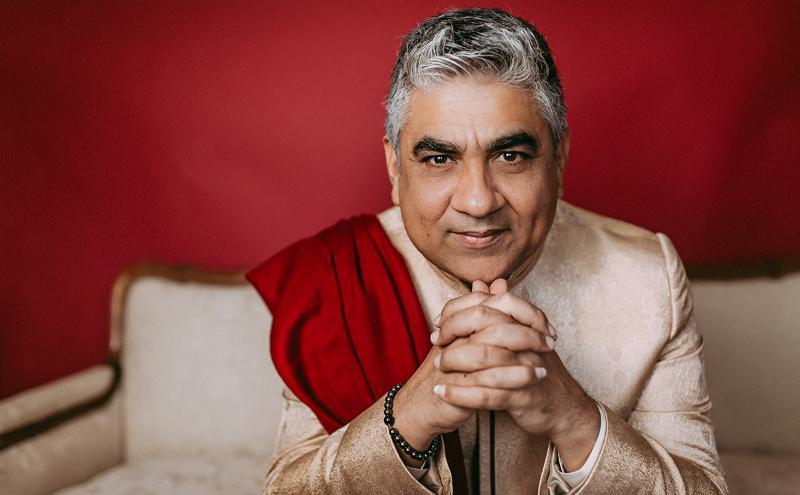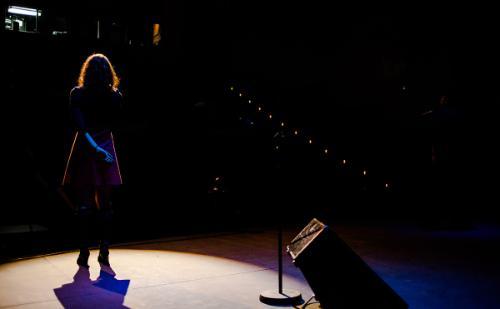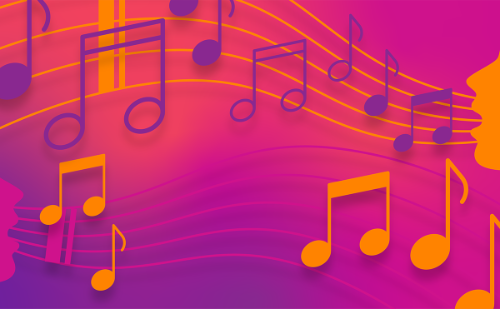Audition Process
Fall intake auditions will be scheduled for February. Late auditions will take place in May. Application for the Music Diploma is part of the standard Capilano University application process. All applicants will be contacted.
Auditions are required for all applicants.
Once an application has been received, the School of Performing Arts office will contact all applicants by email to provide details of the audition process and schedule how the applicant will take their Theory Assessment.
When filling out the application form, please include which instrument(s) you will be auditioning on in the comments section of the form.
Separate auditions are held for the Choral and Instrumental Ensembles at the start of the semester.
Theory Assessment
Applicants must demonstrate a thorough and fluent knowledge of the fundamentals of music (pitch, key signatures, scales, rhythm, intervals, chords, transposition and musical terms).
Applicants who have successfully completed the Royal Conservatory of Music Level Eight Theory (Advanced Rudiments/Grade Two Rudiments) Exam or equivalent will be granted exemption, however, are required to bring a copy of their RCM certificate to the audition.
A sample theory assessment is available by downloading the following PDF files: Sample Theory Placement Exam (pdf)
Distance Theory Exam
If you will be submitting your theory exam virtually, it must be completed in real-time under the supervision of a suitable exam proctor. A schoolteacher or other music education professional may perform this role.
An exam will be sent to the proctor and students will complete the exam under their supervision. The proctor then sends the completed exam to the Music Department. Students are responsible for all costs incurred in this regard.
Performance
Applicants will submit an audition video. A small panel of Music faculty members will assess each submission.
- Each applicant will perform one or two selections with a total length not exceeding 15 minutes.
- Where an accompanist is needed, the applicant can provide their own or perform without accompaniment.
Performance Level Required
- Piano: Royal Conservatory of Music Grade Ten or equivalent.
- Voice: There is no specific grade level required. An ability to perform in a language other than English is an advantage, but not required.
- Wind/Brass/Strings/Guitar/Percussion: Royal Conservatory of Music Grade Six or equivalent.
- World Instruments: There is no specific grade level required.
The above performance levels are approximate guidelines and those applicants who are below the indicated level and demonstrate good potential for future growth and development will be given consideration.
Personal Introduction
Applicants will submit a video introduction of themselves. Help us get to know you better.
Please tell us:
- your name;
- describe your musical background and the training you’ve had;
- your musical ambitions;
- your reason for applying to this program; and
- what do you expect to get out of this program.
The introduction should be 3-5 minutes long and must be presented in English.
Video Setting Instructions
- Recording of performances should be in one uninterrupted take for each piece performed and unedited.
- The applicant’s face and hands must be visible while performing.
- Applicants may use whatever video format that will allow us to clearly hear and see their performance. Typically, applicants use YouTube to post their performances online.
- Set video privacy settings to “Unlisted” and send the direct link. This way, we will not require special permission to view it, but it also will not be public.
- Applicants should send their Introduction and Performance(s) in one link if possible.
Upon review of your personal introduction, performance audition, and theory test, the Music Department may ask students for supplementary information, including a live interview and/or a musicianship skills assessment.
